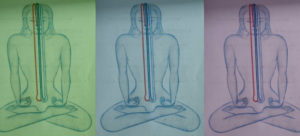Prior to 1950s, scientists believed that as individuals drift off to sleep, their bodies and brain go in the shutdown mode, entering an inactive state which lets them recover from the happenings of the last day.
Eventually, researchers learned that sleep is a lot more complicated and it is a much more active state than it is assumed to be.
In fact when you sleep your brain is going through different patterns of activity.
These patterns of activities are called sleep stages.
In this article, we are going to discuss those sleep stages, and we will be intensely reviewing them.
Why sleep is important?
Sleep is one of those essential things, but it is usually taken for granted although our ability to have a proper sleep is as important as our ability to breath.
When you are not getting enough sleep, you are suffering in a multitude of ways.
Deprivation in sleep can cause cognitive losses such as concentration, memory, moodiness, as well as hyperactivity in children.
It can also evolve other health issues including hypertension, heart disease, and diabetes.
In addition to that, it can also increase the risk of injuries, such as crashes in vehicles, etc. sass
Sleep stages and their importance
I am pretty sure that you have heard something or other about the stages of your sleep.
People often say that while we are sleeping we progress through a series of stages, but the question is what does this indicate?
Isn’t sleep just sleep?
We remember no stages nothing all we remember is a deep quite sleep filled with peace.
Well, in reality, there is a lot of stuff going on inside your brain even when you are in a slumber, and it is the activity in your head which is marking various stages of sleep.
After the invention of electroencephalograph (EEG), it was possible for us to study sleep in such depth.
The first discovery after the design of this tool was of Rapid Eye Movement (REM), which was discovered by a graduate student named Eugene Aserinsky.
After that many studies were conducted on human sleep and they demonstrated that sleep of an individual progresses through a series of different stages in which various brain wave patterns are displayed.
Types of sleep
Sleep is divided into two categories which are making a predictable cycle of sleep of an individual.
NREM
Full form of NREM is Non-rapid eye movement. It is known as the phase of quiet sleep of an individual.
REM
Full form of REM is rapid eye movement which was the first discovery in the research of sleep cycles.
It is also called active sleep or paradoxical sleep.
During this sleep, your eyes are moving quickly in various directions, and your brain is quite active.
Both these types of sleep occur in the stages of sleep.
Stages of sleep
The Beginning of Sleep
In the earliest phase of sleep, an individual is still alert and awake.
At this moment their brain is producing beta waves, which are fast and small.
As the brain starts relaxing and slowing down, slower waves which are called alpha waves start being produced by the brain.
During this phase when you are not quite asleep, strange and extremely vivid sensations can be experienced by you.
These sensations are known as hypnagogic hallucinations.
General examples of this situation are that you may feel like some is calling your name or you may feel like you are falling etc.
NREM Stage 1
Stage 1 is the start of the sleep cycle, and it is a comparatively light stage of sleep.
This stage is known as a transitional period within the wakefulness and sleep of the individual.
It is of non-rapid eye movement sleep, or it can be called dreamless sleepy, this occurs after you have chosen to sleep and you shut your eyes.
This stage of sleep usually lasts for one to ten minutes.
In this stage, you are lightly asleep, but you can return to being awake instantly.
Hence, during this stage, if you awaken someone, they are likely to state that they weren’t asleep.
In addition to that the muscles of your body have not been inhibited to this situation yet, your breathing is slow, and your heartbeat becomes regular in this stage although your blood pressure and brain temperature start decreasing.
One quite common event which can occur in NREM stage 1 is called a myoclonic jerk.
You know that startling feeling you get without any reason that is a myoclonic jerk.
This phenomenon might seem uncommon, but in reality, this is a prevalent thing.
Research states that individuals with irregular sleeping habits are more likely to get these myoclonic jerks. These jerks are also called hypnic jerks.
NREM Stage 2
Once the NREM stage two sleep kicks in, things have started being severe now.
This sleep usually lasts for twenty minutes, and it is characterized by a slow heart rate and a decrease in the temperature of the body.
In this stage, your body starts reducing their activity for preparing you to go in a deep sleep.
It has become harder to wake you up now unlike the first stage, and your brain starts producing more massive waves.
Besides that, your blood pressure decreases in this stage, and other functionality of your metabolic system also slows down.
These first two stages of NREM sleep together are often taken as light sleep.
In this stage you are not that aware of your surroundings, your body temperature drops and heart rate and breathing are more regular.
It has been identified by American Sleep Foundation that people spend almost 50% of their total sleep in the second stage.
NREM Stage 3
This is the third stage of sleep.
It is also known as “Delta Sleep” and “Slow-wave sleep.”
It is because in this stage brain waves “delta waves” are emerging. It usually begins after thirty-five and forty-five minutes after falling asleep.
As ECG showed, our brainwaves are slowing down and becoming more considerable in this stage.
At this point, you are sleeping through most potential sleep disturbances without demonstrating any reaction.
Hence, any activity in the environment in which you are sleeping might not get a response from you.
It is a transitional phase between light sleep and a deep sleep.
Your muscles are relaxed at this stage, and your breathing rate drops. In this stage deep sleep occurs.
If you wake up during this stage, then you are more likely to feel disoriented for the first few minutes of this stage.
Besides that studies have found that bed-wetting mostly occurs in this stage of sleep although bed-wetting can occur in other phases of sleep as well.
Sleepwalking also occurs mainly during this stage of sleep.
REM Sleep
This is the fourth stage of sleep.
It is known as rapid eye movement sleep.
It is the final stage of a standard cycle of sleep.
It is distinguished by rapid eye movement, the risen rate of respiration, and advanced activity of the brain.
The American Sleep Foundation has suggested that people are spending almost 20% of their total sleep in this stage.
First rapid eye movement sleep stage is lasting around ten minutes, and it usually happens after the sleep of at least ninety minutes.
In this stage of sleep, our brain becomes very active, and we get powerful dreams in this stage.
Same goes for bedwetting and sleepwalking.
Our body becomes immobilized and relaxed.
This stage can last as long as an hour, and it gets longer and longer as the night goes by.
This sleep is also known as paradoxical sleep because it shows two different things, that is our brain, and other body systems are becoming very active, but our muscles remain relaxed.
Dreaming occurs in this stage because of the rise in brain activity.
The Sequence of Sleep Stages
It is essential to understand that sleep is not progressing through these stages in a particular sequence.
The cycle of sleep begins in stage one, and from there it progresses towards stage two and three.
After the sleep of stage three, the sleep of stage 2 is repeated prior to entering rapid eye movement sleep.
Once the rapid eye movement sleep is over, our body usually goes back to the sleep of stage two — our sleep cycles through these stages of sleep almost five or six times throughout the night.
On an average, we are entering the rapid eye movement stage after the sleep of ninety minutes.
The first cycle of rapid eye movement sleep lasts only for a short amount of time, but as the night progresses, each cycle starts becoming longer.
Rapid eye movement sleep has the ability to last up to sixty minutes as our sleep progresses.
While generally it is assumed that sleep is a passive procedure, research has determined that in reality, the brain is quite active during various stages of sleep.
Sleep is playing a significant role in the number of procedures of the body including memory consolidation and brain cleanup.
While sleep is often thought of as a passive process, research has shown that the brain is actually quite active during different stages of sleep.
Sleep plays a vital role in a number of processes, including memory consolidation and brain cleanup.
The pattern of rapid eye movement sleep alters as we grow.
Infant babies spend the first year of their lives mostly in rapid eye movement sleep.
From the age of four, the portion of rapid eye movement sleep falls to around 20% of the night whereas the individuals having an age of 60 and more spend about 15% of the night in rapid eye movement sleep.
Sleep of most of the individuals consists of light sleep phase except for infants.
If the amount of time we are sleeping is reduced, then it is the light sleep phase which has to tolerate the brunt of the deficit.
It makes sure that you are still make it to the deep sleep phases, which are having the most soothing effect on the individual.
It is why some individuals are able to deduct their sleeping time to somewhere around four to six hours, depending on the individual, without having a loss of the capacity of the individual.
However, it is essential for us to spend some time in the phase of light sleep for reaching the deeper sleep phases.
It is impossible for us to access deep sleep instantly after falling asleep. Good sleep takes time.
Importance of Stages of sleep
Let’s go through the purpose of stages of sleep, and the importance of stages will be determined through it automatically.
Each stage of sleep is serving a particular purpose for the body.
The primary function of both our deep-sleep and light-sleep is to give our body a regenerative effect on various procedures.
In the REM sleep, your brain is almost as active as it is when we are awake.
We are requiring both deep and REM sleep for processing the memories and impressions of the day correctly.
Our brain evaluates the information which was gained by us when we were awake and organized our memories, storing the most critical data in our long-term memory and ignoring the extra details.
It is why sleep of a good night is crucial for the capacity of our mind.
If you are getting an ample amount of sleep the night prior to your exam which is including several stages of sleep, such as deep sleep and REM phases, you will be able to recall the stuff you have learned quickly.
Getting a deep sleep
These are the things that you can do for a deep sleep
- Make a sleep schedule of the same sleep time and wake up time and stick with it, even on the weekends
- Practice a ritual of relaxed bedtime
- If you get trouble sleeping, then you must avoid naps, particularly in the afternoon.
- Exercising daily
- Evaluating your room and making a cozy environment for sleep
- Sleep on a comfortable pillows and mattress
What can you do during the night?
- Avoid bright lights
- Avoid heavy meals, cigarettes, and alcohol in the evening
- Take work materials, televisions and computers out of your sleeping environment
- Do some calming activity, such as reading, before sleeping. It is to shift you into sleep mode.
Secinājumi
It has been proven through research and studies that sleep is not an inactive activity.
In fact our brain is the most active while we are sleeping although other functions of our body are slow and become almost inactive while we are sleeping.
Sleeping is a very essential thing for human beings and it helps an individual in retaining whatever they learnt throughout the day.
Although if you want to wake up soon then you must not go into deep sleep that is your nap time should be of 15 to 20 minutes.



